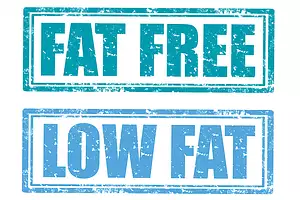Consumption of excess sugar has been found to exponentially increase the risk of developing and dying from heart disease. Reducing the amount of added sugars in your diet may save your life.
One important way that you can decrease the risk of developing and dying from heart disease is to limit the amount of sugar that is in your diet.
A recent study publishing in JAMA Internal Medicine shows that high levels of sweeteners, including sugar, will nearly double their risk of death from heart disease. Scientists already understand the significant link between excess sugar and the increased risk of diabetes and obesity.
This recent study, which collected national health survey data and carefully analyzed it, considered a variety of factors, including weight, age, health, amount of exercise and overall nutrition, has determined a specific amount of sugar that can lead to heart problems.
For those adults who consume more than 25% of their daily calories through sugar, the chance of developing heart disease was nearly twice of those who kept the amount well under 10% of their daily intake.
It was unexpected to find such a discrepancy between the highest and lowest sugar consuming groups, and this leads researcher to conclude that sugar intake can be a very serious problem—but also that this type of risk is avoidable.
According to Laura Schmidt, a professor at the University of California, “Too much sugar can make you fat; it can also make you sick, sick from diseases like cardiovascular disease, which is the No. 1 killer in America. Small amounts of sugar are fine. It’s consuming massive amounts of sugar that’s a growing problem in America.”
As an example, an excessive amount of sugar would be seven or more sweetened drinks, like sodas, per week.
Because heart disease is the number one killer of adults worldwide, and because it claims over 600,000 lives per year in the United States alone.
Researchers are actively pursuing ways to educate the public and help to decrease the incidence and the number of related deaths. One way to accomplish this is through stronger public education programs.
With no specific nutritional guidelines related to the amount of sugar that should be included in a healthy diet, the American Heart Association is now suggesting that sugar calories should be limited to 150 or less per day for a man, and fewer than 100 calories daily for a woman.
Few adults are adhering to these guidelines, and most people consume far more than this on a daily basis.
Nearly 40% of the sugar consumed in the average American diet comes from sodas and sugary drinks. Sweet treats, like cookies, cakes and candy account for most of the rest of the sugar.
Natural sugars that come from veggies and fruit was not counted in this study, as it is not actually sugar that is added to a food.
Researchers are recommending stronger labelling on foods, so that consumers can begin to make healthier choices regarding how much sugar they consume.
As sugar is known to increase blood pressure, cause weight gain and obesity, raise the levels of bad cholesterol, and affect blood sugar and insulin levels which can potentially lead to diabetes, avoiding excess sugar will help decrease the risk of developing many serious health conditions.
Previous studies have identified that added sugars are not healthy for you, but this is the first time a direct correlation has been made between an increased risk of cardiovascular death because of excessive sugar intake.
SOURCES: https://www.bloomberg.com/news/2014-02-03/excess-sugar-may-double-heart-disease-risk-researchers-say.html;archinte.jamanetwork.com/article.aspx?articleid=1819573;https://www.foxnews.com/health/2014/02/04/excess-sugar-consumption-from-soda-desserts-leads-to-higher-rates-of-cardiovascular-death/









Comments
As we’ve said, sugar should be consumed in moderation, as is the case with calories deriving from all foods and beverages. That said, demonizing sugar as a standalone cause of complex health conditions is overly simplistic, and not rooted in the body of science. For instance, consider the fact that as obesity rates have climbed over the past four decades, the lions’ share (84%) of additional calories in the average American’s diet comes from fats, oils and starches. The same USDA data shows that sugar, from all sources, plays a relatively minor role contributing just 9%. Calories from soft drinks played an even smaller role in this increase. And, as CDC data indicates, foods - not beverages - are the number one source of sugars in the American diet.
Also, contrary to the assertions in this article, there is simply no scientific evidence to support the idea that a single ingredient uniquely causes an increased risk of vascular events or diabetes – which are complex health conditions related to myriad factors, including family history, overall diet, inactivity and more.
How do we encourage healthier lifestyles? By supporting education-based efforts that teach people how to balance all calories with physical activity. This balance can certainly include sugars, and sugar-sweetened beverages for that matter, which as this New York Times article explains, are not the pariah some would claim: http://nyti.ms/10ntOrz.
-American Beverage Association